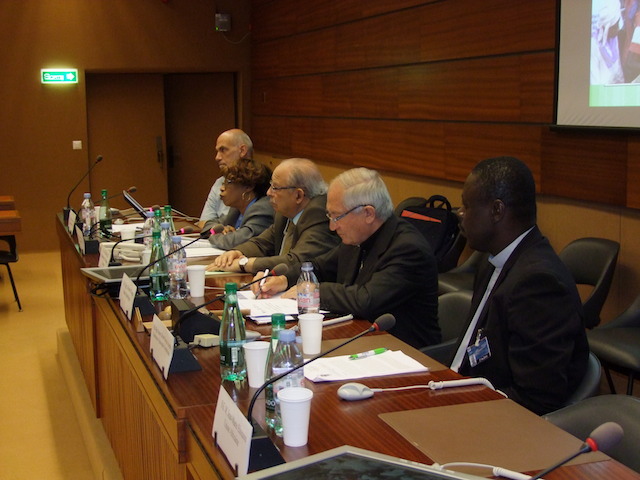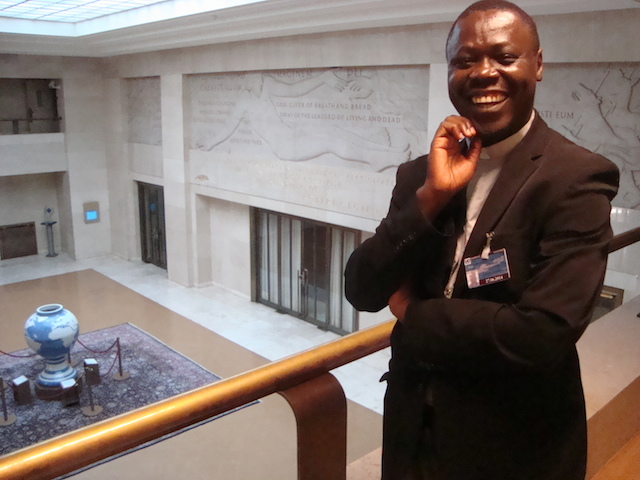The World Evangelical Alliance (WEA) along with Caritas Internationalis co-hosted a special event about the plight of the Central African Republic during the recent U.N. Human Rights Council. The dramatic political crisis in this country led to the almost complete collapse of the state. Political leaders with a military background have messed the society into such chaos that for some time there was no functioning government. The religious leaders of the country have now joined hands and shoulders in an unprecedented effort to salvage the country’s social contract and make it sustainable. The National Evangelical Alliance of the country plays a central role in this struggle for peace. This role brought them into the Pioneers section of Time Magazine’s list of 100 most influential people.
Catholic Bishop Nestor-Désiré Nongo-Aziagbia represented this Interfaith Peace Platform of Central Africa during the recent Human Rights Council session in Geneva. The key leaders of the Platform have to remain in the country as much as possible as the political situation is very fragile. Bishop Nongo-Aziagbia hails from the highly unstable North Western part of the country and could give inside information about the chaotic situation. On the panel discussion during the Human Rights Council was also an expert who could explain the views of the Muslim minority. This capacity was taken care of by the ambassador of the Organisation of Islamic Cooperation, H.E. Mr. Slimane Chikh.
Panel at U.N. Human Rights Council for the Central African Republic
There is a broad coalition in Central Africa that wants to tackle the political instability but it is also clear that geostrategic dynamics used by politicians continue to destabilize the situation. According to the bishop, economic and political forces were the cause of this crisis, while some neighbouring countries also played a role. The present government only has very limited influence and the country desperately awaits the deployment of U.N. forces in September for which the Interfaith Peace Platform has lobbied. The bishop warned that the present government lacks direction; there is no plan for the future. The elections will be held early 2015, planned partly as means to end the civil war, a route to disaster.
Time and again Bishop Nongo-Aziagbia had to explain that the country is not suffering from religious tensions. The religious communities have always lived in peace and this continues to be the goal. Only politicians use religious motives as a cheap way to make their mark on the international media by highlighting religious motives.
During the panel discussion, Mrs. Marie-Thérèse Keita-Bocoum, the U.N. Independent Expert for Central Africa, also stressed that religion, rather than being an obstacle, is part of the solution for the future of the country.
Bishop Nongo-Aziagbia during his stay in Geneva was also received by the (deputy) High Commissioner for Human Rights and gave briefings to the delegation of the European Union and the delegations of Germany, Netherlands and Romania. The U.N. Independent Expert for Central Africa and the U.N. Bureau for Humanitarian Affairs were informed extensively by the Bishop.
Albert Hengelaar, U.N. Advocacy Officer, WEA Liaison Office Geneva
Bishop Nestor-Désiré Nongo-Aziagbia at the U.N. Human Rights Council
See also:
> WEA Calls for Prayer for Central African Republic, Highlights Conflict not of Religious Nature
> Central African Republic – Reconciliation through religion?







Stay Connected